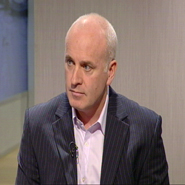John Thompson spent 14 years on death row at Louisiana State Penitentiary, USA, for a crime he did not commit. During that time he survived seven execution dates before finally being exonerated of murder in 2003 after a disclosure from the lead prosecutor, who confessed he had concealed blood evidence which could prove John’s innocence. John left the penitentiary with a small bag of possessions and $10, given to exiting inmates by the Louisiana Department of Public Safety and Corrections for bus fare.
John is also the founder and director of the fledgling non-profit, Resurrection After Exoneration (RAE). When he was exonerated in 2003, John quickly saw that fellow exonerees coming home from prison were struggling and that they needed a support network if they were to succeed and be real advocates for change in the criminal justice system. In response to this, he founded RAE, the first exoneree-run re-entry initiative in the country. Echoing Green, a non-profit organisation dedicated to early-stage social sector investing, awarded John a two-year fellowship and seed money to start RAE.
Paul Blackburn spent 25 years in British prisons maintaining his innocence from the age of 15, before finally his conviction of attempted murder was overturned in 2005.
Each will be providing their own account of the effects of wrongful imprisonment on their families and wider community. They will also be joined by Emily Maw, Director of the Innocence Project New Orleans (IPNO), who will talk about the work of the IPNO, the battle to prove Thompson’s innocence, and the many other cases that she and her team have overturned and are currently involved with.
Dr Michael Naughton, Director of the University of Bristol Innocence Project, said: “This is a great opportunity for people to hear about the damage that is caused by wrongful convictions, and to learn about the importance of the Innocence Project at Bristol in trying to help free innocent people who are languishing in our prisons.
“It also highlights the growing role that the University is playing in linking together with international innocence project members, to raise awareness of this global problem and share ideas about how to overturn wrongful convictions.”
The event, hosted by the University of Bristol’s Innocence Project, based within the University’s School of Law, was the first innocence project in the UK. The project involves students working on real cases concerning long-term prisoners who maintain their innocence, have exhausted the criminal appeals system and have no legal aid.
The talk will take place on Monday 12 October from 6 pm at the University in the Powell Lecture Theatre, HH Wills Physics Building, Tyndall Avenue, Clifton, Bristol.

